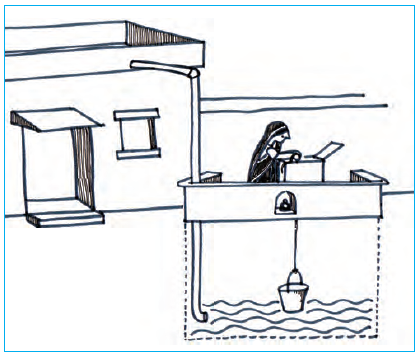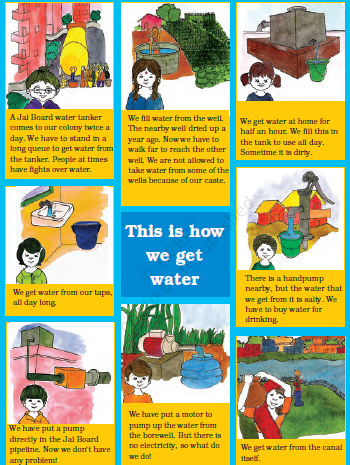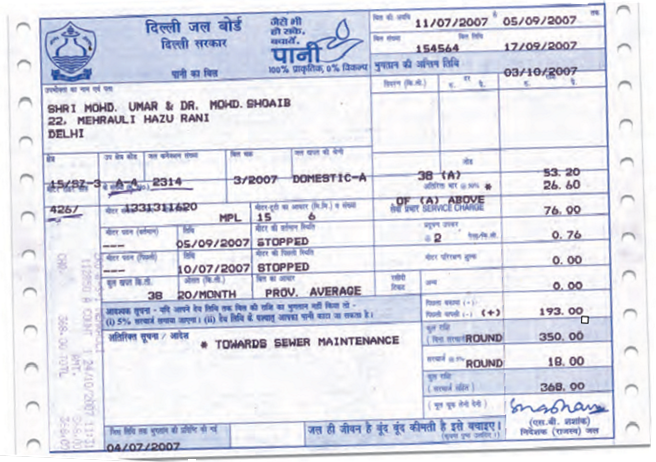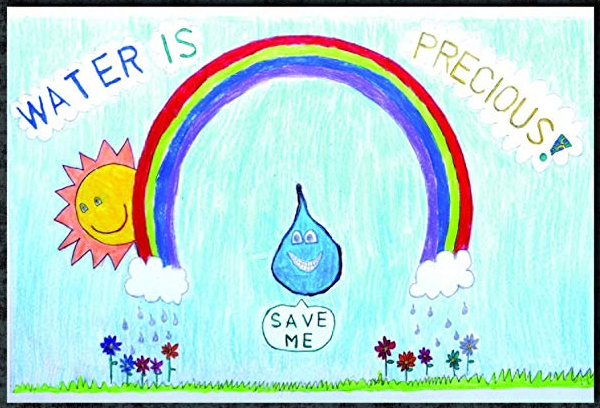EVS is a subject that teaches us about the natural environment. Water is an important natural resource and is very important for life. NCERT Solutions Class 5 EVS Chapter 6 specifically deals with the concept of rainwater harvesting and the conscientious use of water. This is very important as the student learns how precious our resources are and therefore develops relevant behaviour to act on the issue. The solutions for this chapter are created in a meticulous manner. The content is developed in such a way that the students find it easy to understand and comprehend the topic. Interesting illustrations that depict real-life scenarios are also provided.
NCERT Solutions for Class 5 EVS Chapter 6 Every Drop Counts
Access NCERT Solutions for Class 5 EVS Chapter 6
Observe and find out
Q1. Look at the area around your school. Are there any fields, farms, pucca roads, drains, etc. Is the area sloping, rocky or flat? Think, what will happen here when it rains? Where will the rain water go – into the drains, pipes or pits? Is some water also getting soaked into the soil?
Answer: Yes, there are fields, farms, pucca roads, drains, etc., in the area around my school. The area is flat around my school. Usually when it rains. the rainwater goes into the drains and some water also gets absorbed by the soil.
Q2. Every house had a system to collect the rain water. Look at the picture below. How do you think the rainwater that falls on the roof will reach the underground tank? Draw the path.

Answer: The water collected on the roof comes down in the pipes and gets stored in the tank below.
Q3. Have you ever faced a shortage of water in your area? If yes, then what was the reason for it? Talk to your grandmother or any elderly person. Find out, when they were of your age:
Answer: Yes, we do face a shortage of water in our area. My grandmother usually says during summer, there is a water shortage since it is too hot.
Q4. From where did they get water for the house? Has there been a change now?
Answer: They usually get water from rivers, ponds, wells, and hand pumps. Yes, now it has changed. They get water from some suppliers now.
Q5. What kind of water arrangements were made for travellers – for example piau, mashak (leather bag) or any other? Now what do people do about water when they travel?
Answer: Now, people who travel carry their own water bottles or purchase water bottles that are neatly packed from nearby shops.
Customs related to water
Q1. Can we even imagine life without water?
Answer: There is no life without water.
Find out
Q1. Is there a lake, well or step well near your house or school? Visit it and find out more about it.
How old is it? Who got it built?
Answer: Yes, there is a lake near my house. My grandmother says it is more than a hundred years old and was built by the king of Raj.
Q2. What kinds of buildings are around it?
Answer: There are a few recently built buildings and also some old wells around it.
Q3. Is the water clean? Is it cleaned regularly?
Answer: No, the water is not clean in the lake. I have never seen a lake being cleaned regularly.
Q4. Who all use the water?
Answer: People in the village use the water for cleaning purposes.
Q5. Is there any festival celebrated at this place?
Answer: Yes, a boating festival is celebrated every year at this place.
Q6. Is there any water today, or is it dry?
Answer: Yes, there is a little water in the lake.
Discuss
There are two old wells in the area where Punita lives. Her grandmother says that about fifteen – twenty years ago there was water in these wells. The wells could have dried up because:
- Water is being pumped up from under the ground, with the help of electric motors.
- The lakes in which rain water used to collect are no longer there.
- The soil around trees and parks is now covered with cement.
Q1. Is there some other reason for this? Explain.
Answer: Yes, the causes mentioned above are true. However, there are a few other reasons for the cause, which may be the destruction of more trees, no proper maintenance of the wells, and not cleaned regularly.
The story today
Q1. Let us see the different ways in which people manage water today.
Do you get water in your house in any of these ways? Put a tick (✓) on that. If you get water in some other way, write in your notebook.

Answer: By all the means given in the picture, we get water to my house. In addition, we get water by other means as well like:
- We get water by using a hand pump to draw water from underground water.
- There are tankers which supply water to our houses.
- We get water from the Jal Board through pipelines directly to our house.
- A few people draw water directly from the nearby canals.
Discuss
Q1. Everyone has the right to live. Yet, is everybody getting enough water to live or even water to drink? Why is it that some people have to buy drinking water? Should it be like this? Water on this earth is for one and all. Some people draw out water from the ground by deep bore wells. How far is it correct? Have you ever seen this? Why do some people put a pump directly in the Jal Board pipe line? What problems would other people face due to this? Do you have any such experience?
Answer: It is very true that everybody is not getting enough water to drink. Yes, we have come to a situation where we have to purchase water to drink, which is mainly due to scarcity of water. This method has to change. I have seen some people draw water from the ground by deep bore wells, which is a wrong practice, as by doing so, it affects the environment. There are a few people who pump directly from the Jal Board pipeline, so that the water reaches them sooner than the people waiting in queue and hence, there is a scarcity of water for a normal life. I too have faced some situations where we had to suffer from scarcity.
Look at the bill and tell

Q1. From which office has this bill come?
Answer: This bill has come from the Jal Board, Delhi.
Q2. Do you get a water bill at home? Find out from where it is sent.
Answer: Yes, we do get water bills at home. The bill comes from the Department of Delhi water supply board.
Q3. Why do you think Dilli Sarkar (Government of Delhi) is written under Delhi Jal Board?
Answer: Dilli Sarkar (Government of Delhi) is written under Delhi Jal Board because the Delhi Jal Board is under the Government of Delhi.
Q4. In whose name is the bill? How much money do they have to pay for each month?
Answer: The bill is under the name of Shri Mohd. Umar and Dr Mohd. Shoaib. They pay a monthly bill of Rs 368.
Q5. Do you have to pay for water? How much? Is the rate of water different in different colonies? Ask your elders
Answer: Yes, we have to pay around Rs. 500 per month for drinking water. The rate remains the same in different colonies.
What we have learnt
Q1. Make a poster: Do you remember the slogan – “Water on earth is for one and all.” Think of some other such slogans. Draw pictures and make a nice poster.
Answer:

Q2. Bring a water bill, look at it and tell –
This bill is from – date to – date.
Answer: The billing is from 15th January 2020 to 2nd February 2020.
Q3. How much money is to be paid for this bill?
Answer: The bill amounts to Rs. 500 per month.
Q4. What else can you see in the bill, like the money spent on repair, maintenance etc.?
Answer: We can see other amounts billed for repair, maintenance arrears, etc.
Related Links :






Comments